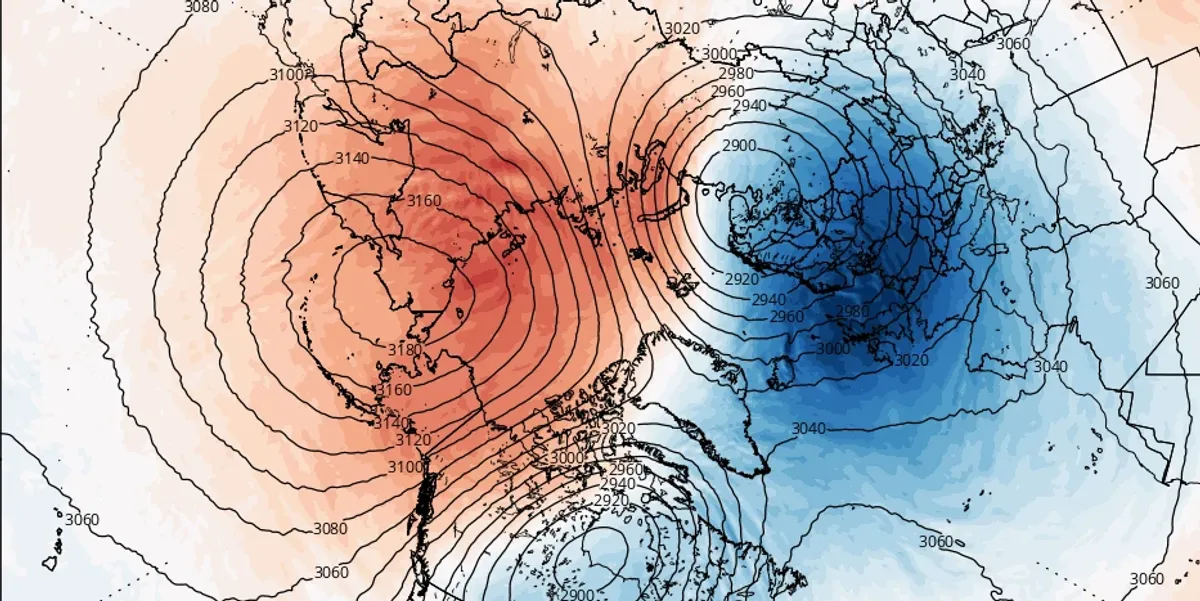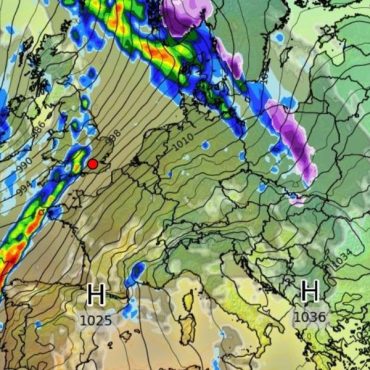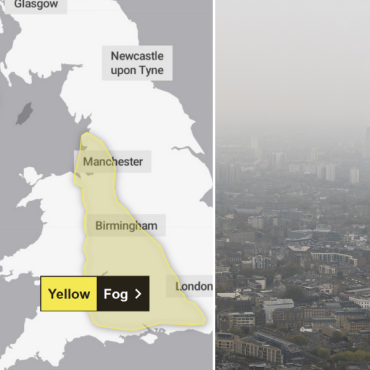Anyone out celebrating the New Year may have to wrap up warm as temperatures are set to plummet.
It comes as meteorologists predict “stratospheric warming event” above and around the North Pole may disrupt the current circulation pattern, causing a fall in temperatures.
Heavy rain, falling on already saturated ground, has led to severe flooding in the wake of Storm Gerrit.
Even though the weather is now moving away, brought torrential showers overnight, accompanied by thunder and severe gales.

The totals of rainfall over the last 24 hours
Netweather.tv
A spokesperson from NetWeather said: “A stratospheric warming event above the North Pole around the New Year may disrupt the current circulation pattern, potentially ushering in colder, drier weather.
“This potential change is anticipated after the second week of January, but more wet and windy weather is likely before then.
“Yesterday’s weather warnings from the Met Office have been cancelled, but a robust south-westerly wind will persist, bringing gusts of 40 to 50mph in the west and north, particularly during heavier, squallier showers.
“Further sleet or snow is expected over the Northern Isles and in the mountains of northern Scotland, where temperatures will range from two to four degrees, feeling cold and raw in the northerly wind.”
LATEST DEVELOPMENTS:

There is increasing possibility of a Sudden Stratospheric Warming
NETWEATHER
Meanwhile, the Met Office reports there will be a spell of wet and windy weather on Saturday with coastal gales, followed by showers and sunny spells on Sunday.
Met Office chief forecaster Steven Ramsdale said: “This system is likely to bring a range of weather including hill snow.
“Heavy rain will spread across all but the far north on Saturday affecting similar areas previously affected by Storm Gerrit.
“However, this rainfall will be a step down from that seen during Storm Gerrit.”
Looking into January, it is set to be a more settled period with even colder weather on the way.
Met Office deputy chief forecaster Nick Silkstone said: “Through to mid-January, there is a signal for a shift in the pattern compared to the winter so far, with more settled and colder-than-average conditions becoming increasingly likely.”













Post comments (0)